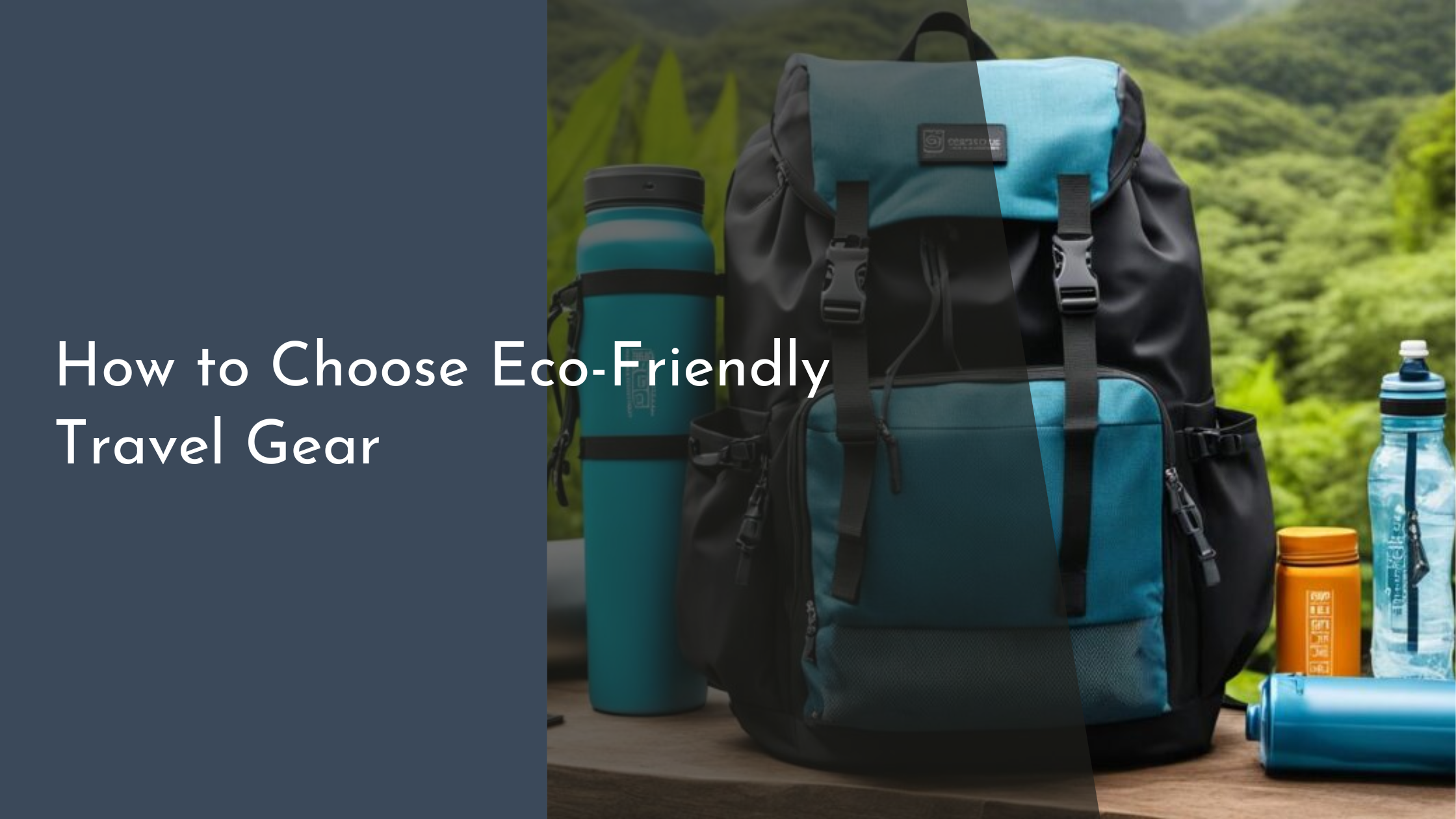How to Choose Eco-Friendly Travel Gear
Traveling responsibly is not just about choosing eco-friendly destinations; it also involves selecting the right travel gear that minimizes your environmental impact. As more people become aware of their carbon footprint, the demand for sustainable travel gear has surged. Whether you’re planning a weekend getaway or a month-long expedition, making mindful choices about your gear can significantly contribute to the health of our planet. In this article, we’ll explore how to choose eco-friendly travel gear, offering insights on materials, features, and critical considerations for the eco-conscious traveler.
Understanding Eco-Friendly Travel Gear Basics
At its core, eco-friendly travel gear is designed to reduce environmental harm at every stage, from production to end-of-life disposal. This kind of gear aims for sustainability, minimal pollution, and reduced resource consumption. It’s essential to understand that eco-friendly doesn’t mean compromising on quality or functionality. In fact, many sustainable products are crafted with durability in mind, ensuring they last longer than conventional gear, which in turn reduces waste.
Choosing eco-friendly travel gear involves looking at various factors, including the life cycle of the product, the environmental impact of its materials, and the ethical practices of the companies that manufacture them. Many brands are now committed to transparency and sustainability, providing certifications and detailed information about their products’ environmental footprint. As you embark on your eco-friendly journey, it’s vital to research and support these companies, ensuring your travel gear aligns with your values.
Materials Matter: Sustainable Choices Explained
The materials used in travel gear play a crucial role in determining its eco-friendliness. Opt for items made from recycled or upcycled materials, such as recycled polyester or nylon, which help reduce waste and demand for new raw materials. Natural fibers like organic cotton, hemp, and bamboo are also excellent choices, as they are biodegradable and require fewer resources to produce. Additionally, look for certifications like GOTS (Global Organic Textile Standard) or OEKO-TEX, which guarantee the materials meet specific environmental standards.
Biodegradable and plant-based materials are becoming increasingly popular as well. For instance, some companies are producing gear using biodegradable plastics or natural rubber, which break down more easily in the environment. Moreover, exploring innovative materials like Piñatex, made from pineapple leaf fibers, or mycelium leather, derived from mushrooms, can lead to unique and sustainable products that don’t sacrifice style or performance. Understanding the materials in your travel gear is essential in making informed, eco-conscious choices.
Essential Features for Eco-Conscious Travelers
When selecting travel gear, consider features that enhance sustainability, like multifunctionality and modular designs. Items that serve multiple purposes or can be easily adjusted and expanded reduce the need to purchase additional products, cutting down on waste and resource consumption. For instance, a backpack that doubles as a daypack or a travel jacket that converts into a pillow or blanket can streamline your packing list and lessen your environmental impact.
Another vital feature is the product’s reparability and longevity. Seek out brands that offer repair services, spare parts, or lifetime warranties, which encourage product longevity and discourage the throwaway culture. Additionally, consider gear that is lightweight and compact, as this can reduce fuel consumption during travel, especially on flights. By focusing on these essential features, you can choose travel gear that supports your eco-friendly travel goals.
Choosing eco-friendly travel gear is a rewarding process that allows you to explore the world while preserving its beauty for future generations. By focusing on sustainable materials and essential features, you can make a positive impact without sacrificing functionality or comfort. As you plan your next adventure, remember that every small decision counts. By opting for eco-friendly gear, you are not only reducing your environmental footprint but also supporting a global shift towards sustainable living. Travel green, enjoy the journey, and help protect our planet one trip at a time.


